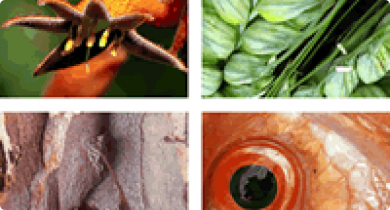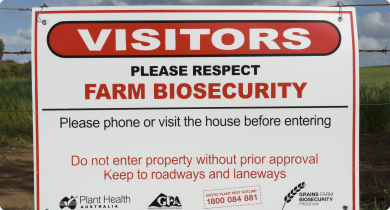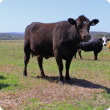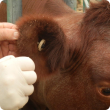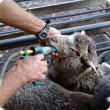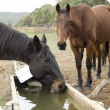Pests, weeds & diseases
Pests, weeds and diseases pose a serious risk for primary producers as they can impact on market access and agricultural production.
To reduce the impact of pests, weeds and diseases, the Department of Primary Industries and Regional Development:
- works with landholders, grower groups, community groups and biosecurity groups.
- provides diagnostic services and information on prevention, management and treatment.
- provides biosecurity and quarantine measures to prevent introduction, and to eradicate or manage current pests.
For advice on pests, weeds and diseases search our website, the Western Australian Organism List or contact our Pest and Disease Information Service (PaDIS).
For diagnostic services, please contact our Diagnostic Laboratory Services.
Filter by search
Filter by topic
- Diseases (109) Apply Diseases filter
- (-) Remove Livestock & animals filter Livestock & animals
- (-) Remove Livestock health & diseases filter Livestock health & diseases
- Biosecurity & quarantine (93) Apply Biosecurity & quarantine filter
- Biosecurity (92) Apply Biosecurity filter
- Livestock species (91) Apply Livestock species filter
- Livestock disease surveillance (90) Apply Livestock disease surveillance filter
- Livestock biosecurity (89) Apply Livestock biosecurity filter
- Livestock management (49) Apply Livestock management filter
- Sheep (44) Apply Sheep filter
- Beef cattle (30) Apply Beef cattle filter
- Emergency animal disease preparedness (28) Apply Emergency animal disease preparedness filter
- Dairy cattle (24) Apply Dairy cattle filter
- Management & reproduction (18) Apply Management & reproduction filter
- Poultry & birds (12) Apply Poultry & birds filter
- Pigs (12) Apply Pigs filter
- Livestock parasites (11) Apply Livestock parasites filter
- Goats (11) Apply Goats filter
- Feeding & nutrition (11) Apply Feeding & nutrition filter
- Horses (8) Apply Horses filter
- Livestock movement & identification (7) Apply Livestock movement & identification filter
- Chemicals (5) Apply Chemicals filter
- Control methods (5) Apply Control methods filter
- Wildlife biosecurity (4) Apply Wildlife biosecurity filter
- Veterinary chemicals (4) Apply Veterinary chemicals filter
- Emergency response (4) Apply Emergency response filter
- Stockfeed (4) Apply Stockfeed filter
- Food, export & investment (3) Apply Food, export & investment filter
- Quarantine (2) Apply Quarantine filter
- Residues in livestock (2) Apply Residues in livestock filter
- Preventing residues (2) Apply Preventing residues filter
- Importing to Western Australia (2) Apply Importing to Western Australia filter
- Importing animals (2) Apply Importing animals filter
- Livestock research & development (1) Apply Livestock research & development filter
- Water management (1) Apply Water management filter
- Export services (1) Apply Export services filter
- Water (1) Apply Water filter
- Camelids (1) Apply Camelids filter
- Biosecurity and Agriculture Management Act (1) Apply Biosecurity and Agriculture Management Act filter
- Biosecurity governance (1) Apply Biosecurity governance filter
- Climate, land & water (1) Apply Climate, land & water filter

